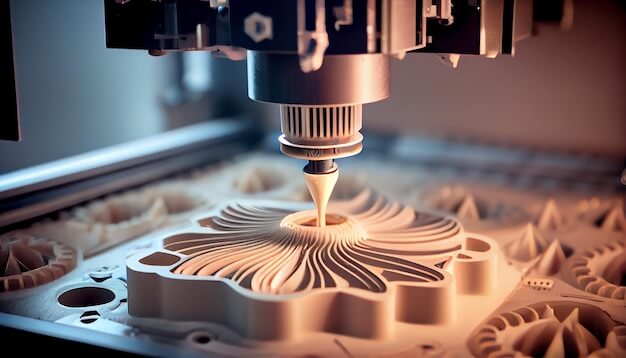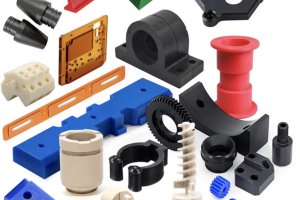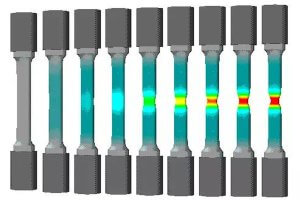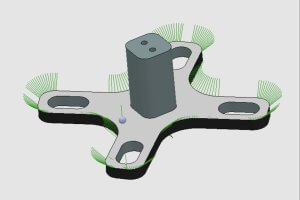Precision Machining of Aluminum Parts: Quick and Reliable
Precision machining is a meticulous manufacturing process that entails controlled material removal from a piece through numerous cutting techniques. Predominantly utilized with aluminum, this technique contributes significantly to the production of precise and high-quality parts. The utility of precision machined aluminum parts extends across various industries such as automobile, aerospace, medical devices, electronics, and more due to their lightweight, corrosion resistance, and thermal conductivity.
- Brief explanation of precision machining & aluminum parts production: Precision machining constitutes processes like milling, turning, or electrical discharge machining (EDM) to enable intricate details and achieve stringent tolerances. Working mainly with aluminum, it results in robustly manufactured components meeting accurate specifications.
- Importance and utility of precision machining in different industries: Precision-machined aluminum parts have gained considerable traction owing to their durability, versatility, and superior performance capacity. Their wide-ranging applications include engine parts for automobiles, spacecraft components, medical implantable devices to electronic casings, marking their unparalleled significance in these sectors.
Why Aluminum for Precision Parts?
Aluminum exhibits numerous properties that make it a preferred material in manufacturing precision parts. Some of its beneficial characteristics include lightweight, durability, and resistance to corrosion. For instance, when compared to other metals such as steel or brass, aluminum is approximately one third the weight while still maintaining excellent strength and sturdiness which is crucial in fabrication of heavy-duty equipment.
- Cost-effectiveness: Manufacturing with aluminum proves more cost-effective because it’s more abundant, easy to work with and requires less energy during production.
- Versatility: The versatility of aluminum is displayed in its capability to be rolled into thin sheets, moulded into curves or extruded into complex shapes offering manufacturers creative liberty.
In conclusion, these unique aspects of aluminum lend themselves to the efficient production of precision machining components with minimal wear on tools, enhancing longevity and resulting in overall reduced manufacturing costs.
The process of precision machining aluminum parts involves the use of advanced CNC machining techniques to produce accurate and high-quality components. This process is essential for creating intricate and reliable aluminum parts for various industrial applications.
Advantages of Precision Machined Aluminum Parts
Precision machining offers substantial benefits when it comes to the manufacturing of aluminum parts, making production both quicker and more reliable. For starters, it significantly expedites the speed of production, leveraging automated systems that streamline operations and eliminate the time-consuming aspects associated with manual labor. By avoiding human error, precision machining also ensures delivery of consistently high-quality products. The inherent consistency of this process is crucial in industries where uniformity across components is non-negotiable.
In addition, precision machining provides an upper hand in terms of customization, allowing for unparalleled versatility in design. This technology enables manufacturers to create intricately detailed designs that include complex geometries or small features which might be difficult or impossible with conventional methods. These customizable capabilities mean companies can readily adapt their product lines as per client requirements or evolving market trends, thereby offering them a competitive edge.
- Speed of Production: Automated processes of precision machining accelerate the production process.
- Quality Delivery: Consistency derived from removing manual labor errors guarantees high quality in each component.
- Customization: Ability to create intricate and versatile designs opens up endless possibilities in product creation.
Applications of Precision Machined Aluminum Parts
Precision machined aluminum parts play a vital role in various industries, thanks to their ideal properties such as lightweight and excellent strength-to-weight ratio. One notable sector that heavily relies on these components is the automotive industry. For instance, these precision parts are widely used for manufacturing engine components or encasing electronic control units. They significantly contribute towards building efficient, powerful, yet light vehicles.
The aerospace industry is another major consumer where precision machined aluminum parts, such as wing spars or fuselage frames, find applications owing to their high structural rigidity and resistance to harsh environmental conditions. Similarly, within the electronic industry, they’re preferred choices for fabricating delicate circuit boards and housing protective casings due to their thermal conductivity and corrosion resistance.
In summary, be it increasing the performance of cars, ensuring the safety of spacecrafts, or optimizing the efficacy of electronics- the significance of precision machined aluminum parts prove indispensable across diverse uses.
Other Articles You Might Enjoy
- Crafting Precision through Bead Blasting in CNC Machining(rivet vs Bill)
Bead blasting is a crucial step in Computer Numerical Control (CNC) machining that dramatically enhances the final look and feel of machined parts. This versatile finishing process prepares materials for…
- The Art of Bead Blasting in CNC Machining(rivet vs Louise)
Bead blasting refers to a machining process, employed widely within the industry, which utilizes minute spherical beads often made out of glass, ceramic, or other materials propelled at high speed…
- CNC Machining of Rare Earth Metals: Applications and Material Characteristics
CNC Machining and Rare Earth Metals: An Overview CNC machining, short for Computer Numerical Control machining, is a manufacturing process where pre-programmed computer software dictates the movement of factory tools…









